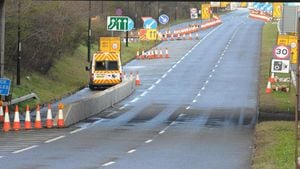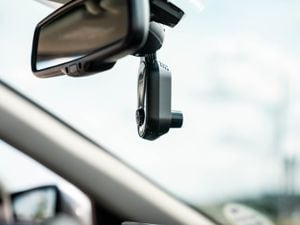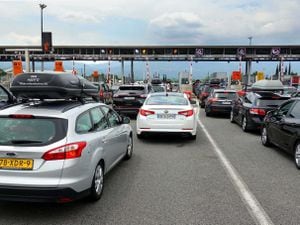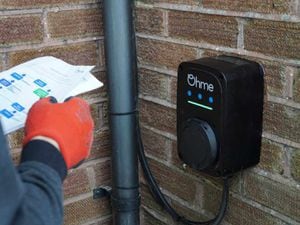Police deploy mobile speed cameras more than 51,000 times a year
New figures reveal Avon and Somerset Constabulary were the force to send out the most mobile cameras in England, with Police Scotland taking the top spot in the UK-wide list

Avon and Somerset Constabulary deployed mobile speed cameras 7,504 times in a single year – 5,000 times more than any other force in England.
Motorists under the jurisdiction of the west of England force were the most watched in the country, with its 15-strong fleet of nine vans and six bikes sent out to enforce up to seven sites each on a daily basis. Overall, its vehicles were deployed 21 times a day on average.
This was 5,107 times more than fellow English force Hampshire Police in second (2,397).
Police Scotland were top of the list with 9,154 deployments, 25 times a day. However, the force said it was unfair to compare them in this way, as its jurisdiction is considerably bigger than others. Only the Metropolitan Police is larger.
Three Welsh forces – South Wales Police (4,572 times), North Wales Police (4,044), and Gwent Police (2,812) – placed third, fourth and fifth in the UK-wide table.
The data was collected from Freedom of Information requests submitted by the Press Association to all 45 police forces in England, Scotland, Wales and Northern Ireland – 26 forces responded, while 19 either didn’t know or refused to give any information.
It showed that forces deployed mobile speed cameras, on average, at least six times a day in the last financial year (April 2016 – March 2017).
Only one force, Durham Constabulary (0.95), had an average of less than one per day. Across the UK, mobile speed cameras were deployed more than 51,000 times in total.
Superintendent Andy Williams, head of road safety at Avon and Somerset Constabulary, said: “We are committed to keeping our roads and road users safe.
“Speeding itself is a low level offence but has a huge impact on people’s lives and is a significant factor in many road traffic collisions and this is why we are working closely with our partner agencies – including Highways England – to reduce fatal and serious injury road traffic collisions in Avon and Somerset.
“As a force we do not want to detect people speeding, we want people to obey the speed limits. We publicise all our mobile and static camera locations, so there is no excuse when people are detected.
“In 2016, 162,173 people were offered education for a detected offence and more than 80,000 chose this option.”
The data revealed that three forces in Britain do not use mobile speed cameras at all – Essex, Wiltshire and the Met. However, a spokesperson for the Met said no mobile cameras were deployed “owing to technical issues on the processing side, but this is likely to change in the very near future”.
Edmund King, AA president, said: “There is a postcode lottery when it comes to the use of mobile speed cameras.
“Logically one might assume that those police force regions with no active fixed cameras would use mobile cameras the most.
“But four forces, Cleveland, Durham, North Yorkshire and Northamptonshire, have no fixed speed cameras in use at all. Yet Durham police come out bottom of the table for use of mobile cameras (just under one per day), Cleveland are seventh from bottom (just two cameras per day). North Yorkshire and Northamptonshire did not respond.”
Jason Wakeford, director of campaigns for Brake, the road safety charity, added: “A staggering 1,800 people lost their lives on British roads last year and speeding is a factor many crashes.
“Speed cameras are a proven, cost-effective way of reducing deadly collisions.”
The latest figures come just weeks after another Press Association investigation revealed that half of the country’s fixed speed cameras are switched off.
Figures released by 36 police forces found that of a total 2,838 cameras, just 1,486 – or 52 per cent – are active and catching lawbreakers.
A National Police Chiefs’ Council spokesman said: “Mobile speed enforcement cameras are a useful tool for forces in detecting offences of excess speed and they also act as a deterrent in making our roads safer.
“There are a variety of mobile speed enforcement camera options available to police forces including those fitted to patrol cars, hand held devices and speed detection vans necessary to provide forces with a flexible, efficient way to enforce excess speed and to reduce the risk of collisions.
“Mobile speed enforcement cameras help to increase public safety and forces are able to identify locations which have a higher probability of harm and position them at the times when we feel they will most help prevent speed related problems.”
Table:
*Forces outside of England
By Will Rimell





